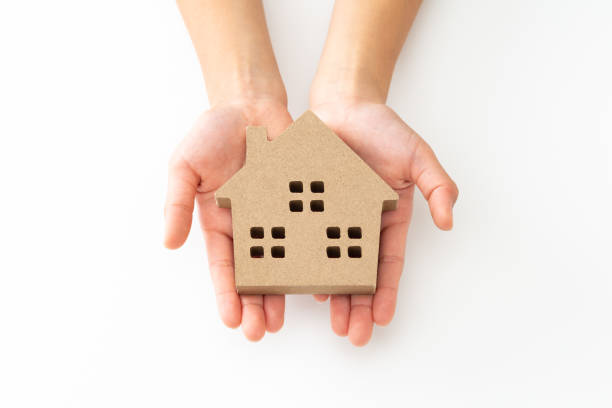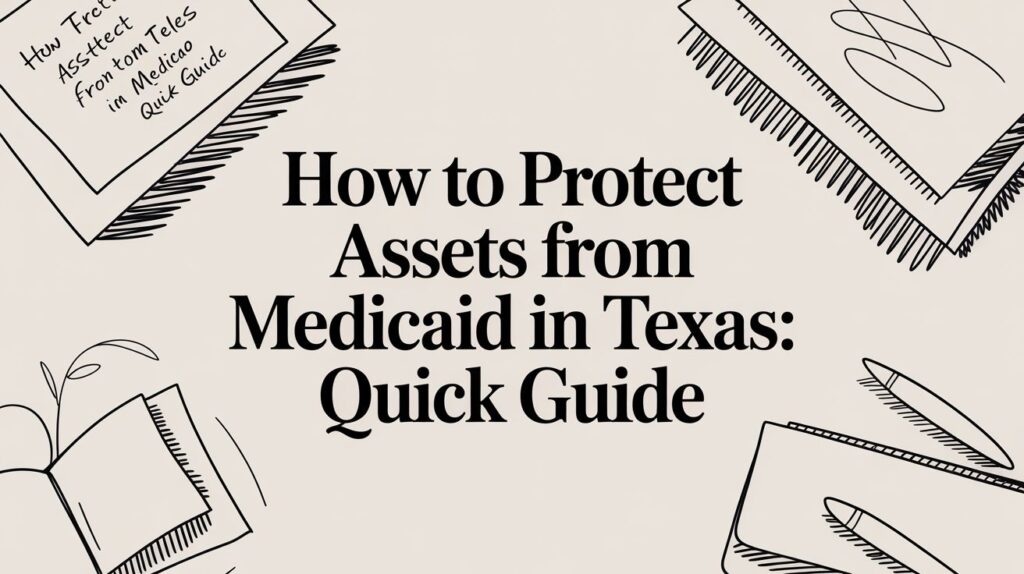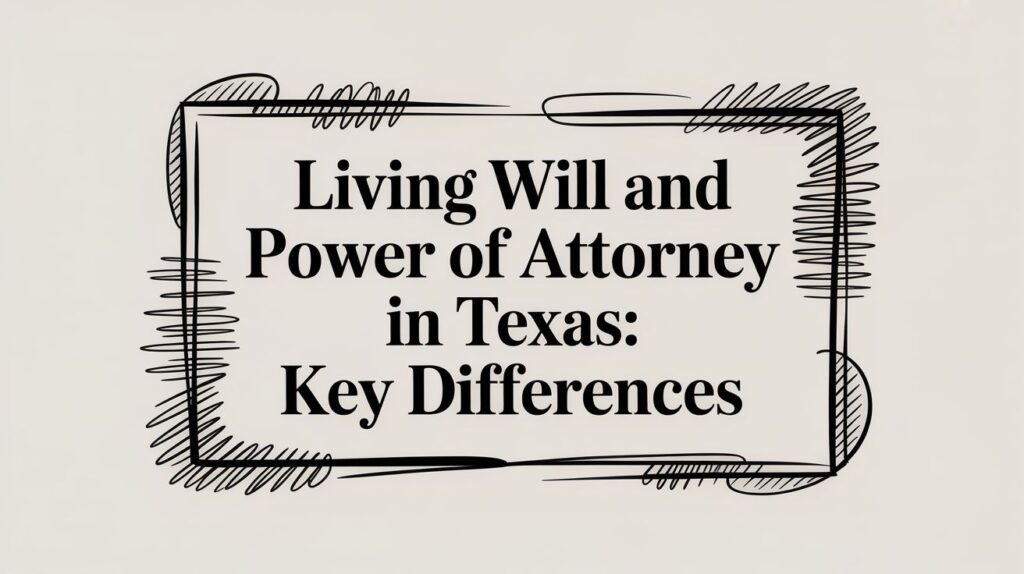Inheritance is often viewed through a lens of gain—assets passed down, wealth preserved, and legacies honored. But not all inheritances are welcome. In Texas, as elsewhere, heirs may find themselves inheriting a property they never asked for and would rather not keep. Whether it’s a run-down house with mounting debt, a remote property with no practical use, or a home tangled in family disputes, many Texans find themselves asking one question. What happens when you don’t want the house you just inherited?
This legal and emotional dilemma sits at the intersection of estate law, personal responsibility, and property rights. And unlike what some may assume, simply refusing to accept an inherited home in Texas isn’t always as simple as saying “no.” Whether you’re named in a will, part of the intestate succession process, or caught in a multi-heir situation, declining an inheritance—especially real estate—requires careful legal action and awareness of the consequences.
Let’s break down what happens when heirs refuse an inherited house in Texas. We’ll go over what legal options they have and how the system handles unwanted property when no one steps forward.
Why Would Someone Refuse an Inherited Property?

There are many reasons someone might not want to keep an inherited home. While it may seem like a financial windfall, property ownership also comes with responsibilities, liabilities, and ongoing costs. Some of the reasons heirs in Texas walk away from inherited houses include overwhelming debt tied to the property, major repair issues, or complicated family dynamics that make co-ownership untenable.
In many cases, the house comes with unpaid property taxes, mortgage payments, HOA dues, or liens. In others, the property may be in serious disrepair—more of a financial drain than a blessing. For some, emotional reasons play a role: the property might carry memories of a difficult past. It may also be located far from where the heir lives and works.
Understanding the implications of refusing an inheritance starts with understanding how Texas probate law treats property transfers after someone dies.
How Property Is Passed Down in Texas
When a person dies in Texas, their property becomes part of their estate. That estate must be resolved through either probate or alternative legal processes. If the deceased had a valid will, the named executor is responsible for distributing assets according to its terms, including any real estate. If there’s no will, Texas intestate succession laws kick in. The property is then divided among heirs based on legally defined relationships.
In both scenarios, real estate typically transfers automatically upon court approval to the heirs or beneficiaries. But inheriting property doesn’t mean the title is immediately and permanently yours. You still have the option to disclaim the inheritance. However, this is only if you do so in the correct legal manner and within the allowed timeframe.
The Legal Option to Disclaim Inherited Property

Texas law allows heirs and beneficiaries to disclaim, or refuse an inheritance. This is a formal legal process—not just a casual statement. To effectively disclaim an inherited house or interest in a house, the heir must file a written disclaimer. This must also meet the requirements outlined in the Texas Estates Code.
Requirements of a Valid Disclaimer
The disclaimer must:
- Be in writing
- Be signed by the heir or beneficiary
- Describe the property being disclaimed
- Declare the refusal to accept the inheritance
- Be delivered to the executor or administrator of the estate (or filed with the probate court)
Timing is crucial. To be effective under Texas law, the disclaimer must typically be made within nine months of the decedent’s death. If done correctly, it’s as though the heir had died before the decedent for purposes of inheritance. This means the property passes on to the next eligible heir or beneficiary under the will or the intestacy laws.
Importantly, the person disclaiming cannot have accepted any benefits from the property before disclaiming it. If you start collecting rent, making repairs, or paying taxes, you may lose your ability to disclaim.
What Happens to the Property After a Disclaimer?
Once an heir legally disclaims an inherited property, it no longer belongs to them, and they cannot control what happens to it. The property passes to the next person in line under the will or state succession laws. If all heirs disclaim the house, the estate may remain responsible for dealing with it. However, without willing participants, the court may need to intervene.
In cases where no heirs step forward or validly disclaim their interests, the property may become what’s known as an “escheat” asset. This means the property eventually reverts to the state of Texas due to a lack of lawful claimants. However, escheat is rare and typically happens only after all other options have been exhausted.
When a Disclaimer Isn’t an Option: Abandonment and Informal Walkaways
What happens when an heir simply ignores the inheritance? Maybe they don’t file a disclaimer, but they don’t take any action either. Can you “walk away” from an inherited home?
Technically, no one can be forced to accept an inheritance. But doing nothing can create its problems. For example, the property might accumulate unpaid taxes, become a safety hazard, or fall into code violation—all of which can eventually trigger legal action from the city or county. If the heir’s name ends up on record due to probate, they could be held accountable for some of those consequences, even if they didn’t intend to accept ownership.
This situation often creates legal limbo. The house sits vacant, unpaid taxes pile up, and no clear title exists. Local governments may eventually initiate foreclosure for unpaid property taxes, but this process can take years and hurt the surrounding neighborhood. It also complicates matters if any other heirs later try to claim the home or sell it.
When Multiple Heirs Are Involved
Inherited real estate can become even more complicated when there are multiple heirs—and not all of them agree on what to do with the property. If one or two siblings want to disclaim their interest, they can, but the others may be left holding partial ownership. This creates what’s known as “tenancy in common,” where each heir owns a fraction of the property.
This shared ownership can lead to disputes over who maintains the home, who pays for taxes or repairs, and whether the property should be sold. In the absence of a co-ownership agreement, any heir can file a partition action—a lawsuit asking the court to divide or force the sale of the property.

If some heirs have disclaimed their interest, the remaining heirs may receive a larger share. But this doesn’t always simplify matters. In some cases, the property is so burdened with debt or damage that no one wants to take full responsibility. That’s when selling the property—either through agreement or court order—becomes the most viable path forward.
Selling Unwanted Inherited Property in Texas
For heirs who want to avoid the complexities of property ownership but don’t want to legally disclaim their inheritance, selling the property may be the best option. This can be done directly through a real estate sale, often with the help of the estate’s executor if probate is ongoing.
In cases where multiple heirs are involved, everyone typically must agree to the sale unless the court orders otherwise. If the home is still in probate, the sale proceeds are distributed according to the will or intestate law. If the title has already been transferred, the heirs must coordinate as co-owners.
However, selling isn’t always easy. The property may have title issues, back taxes, or structural problems that make it difficult to list on the open market. In such cases, heirs may turn to investors or “cash home buyers” who specialize in purchasing inherited homes in as-is condition. While these sales often come with a reduced price, they can eliminate liability and close quickly.
Planning Ahead: How to Avoid Unwanted Inheritance Issues
For those creating an estate plan, one of the best ways to prevent these dilemmas is to communicate clearly with potential heirs. Don’t assume that everyone wants to inherit real estate, especially if the property requires upkeep or has financial obligations. If your goal is to leave a positive legacy, consider whether your heirs have the means or desire to maintain it.
Texas estate planners may also use tools like transfer-on-death deeds, trusts, or outright sale of property before death to avoid leaving heirs with unwanted assets. Naming backup beneficiaries, or providing cash instead of property, can also help reduce the chances of a property going unclaimed or becoming a burden.
Conclusion
Inheriting a home in Texas doesn’t always feel like a gift. For many heirs, especially those who live far away, can’t afford the upkeep, or simply don’t want the responsibility, that house can become a source of stress, conflict, and financial risk. Thankfully, Texas law provides mechanisms for refusing inherited property—but doing so requires timely and formal action.
If you’ve found yourself with an inheritance you don’t want—or if you’re planning your estate and hoping to avoid putting loved ones in that position—understanding your legal rights is the first step. Whether you disclaim, sell, or share the property with others, clarity, communication, and careful planning can make all the difference.








